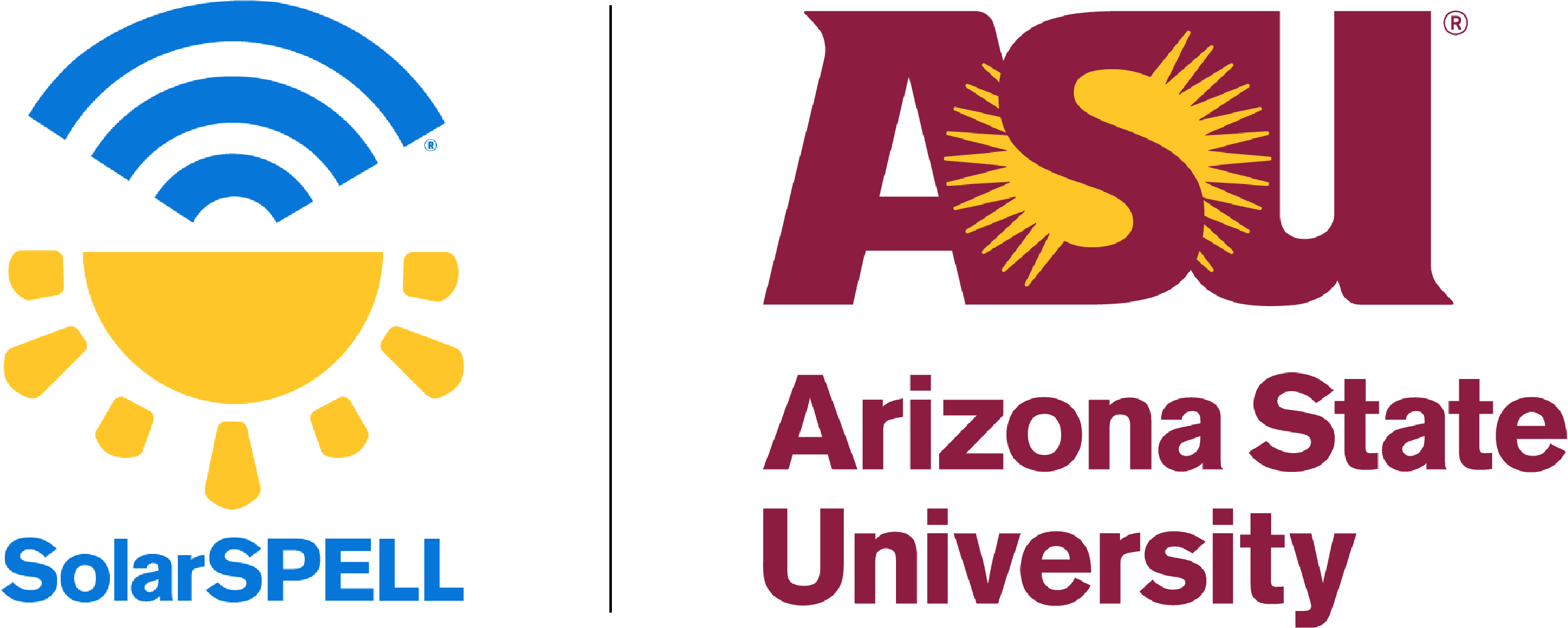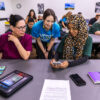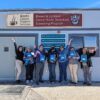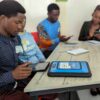In August of 2019, the SolarSPELL team traveled to Fiji to train a new cohort of Peace Corps Volunteers and Teachers – and as the Library Specialist for the team, it was truly an invigorating experience for me. What some rural areas in Fiji lack in connectivity to the internet or electricity, they more than make up for in a lush, abundant environment and a strong sense of community. As we made our way over the islands by plane from Nadi to Taveuni, I caught a glimpse of the countless villages set deep into valleys, enveloped by a healthy carpeting of vibrant forest. I was struck by the remoteness of some of these small areas of civilization. I remember hoping that with the new updates I had just made to the Pacific Islands collection on the library, that I would make a good impression with the new resources we brought.

About a year ago, our team launched a pilot with four schools that had Peace Corps volunteers in Fiji – by the time I arrived just a few weeks ago, SolarSPELL had already had a presence for an entire year in the pilot schools. This year, our goal was to train teachers and Peace Corps volunteers from 16 remote schools throughout Fiji. As an added bonus, we had the opportunity to train eight librarians from the Fiji Ministry of Education – and you can imagine my excitement when I – as the Library Specialist for SolarSPELL – had a chance to speak with them directly and absorb as much feedback as possible.

After nearly a year on the SolarSPELL team, this was my first trip to the field. There were so many moments during our ten days that made this a completely unforgettable experience. Above all, I was finally able to see our digital library in action in Taveuni.
In the time we spent with Courtney, we accomplished a number of things: I was able to provide her with an update to her library collection; we also interviewed her to collect qualitative data about how SolarSPELL is being used in her community. We also visited the school at which she teaches and runs a library, and interviewed the head teacher, Master Orisi, to collect qualitative data about how the SolarSPELL has been used in the community and school. Courtney’s host family treated us to a homemade lunch; and finally, we got to demo the updated collection with a group of children from the village.

The entire visit was absolutely monumental in helping to remind me who benefits from our library. Specifically, being able to witness firsthand how our primary stakeholders — the students — access the digital materials on the SolarSPELL was unforgettable. I was able to see that children everywhere in the world have a thirst for knowledge, and that’s why libraries and access to information are so important. I was reminded that by providing access to information through our library, we aim to invigorate an already thriving community.

I also witnessed in person something I already knew being on the team for a year: that the highly relevant and localized content we offer access to is fundamental, and that’s why SolarSPELL is so unique in that sense. Our team can just as easily download webpages and hundreds of thousands of digital materials onto our Raspberry Pi and bring a massive collection to our communities; but learning takes place when the thing you’re learning can be recognizable – when you can relate to it and understand it as your own. It reminds me of when people say, “I never thought it would happen to me…” after they’ve understood and internalized a valuable life lesson. We learn by recognizing that something fits within our lives somehow. That is what is so special about SolarSPELL, and that is what I felt during my visit to Taveuni – with Courtney, and Master Orisi, and the countless students whose faces lit up when they watched our new videos, learned how to add large numbers on the newly-installed KA lite app, and read stories they could truly recognize.







